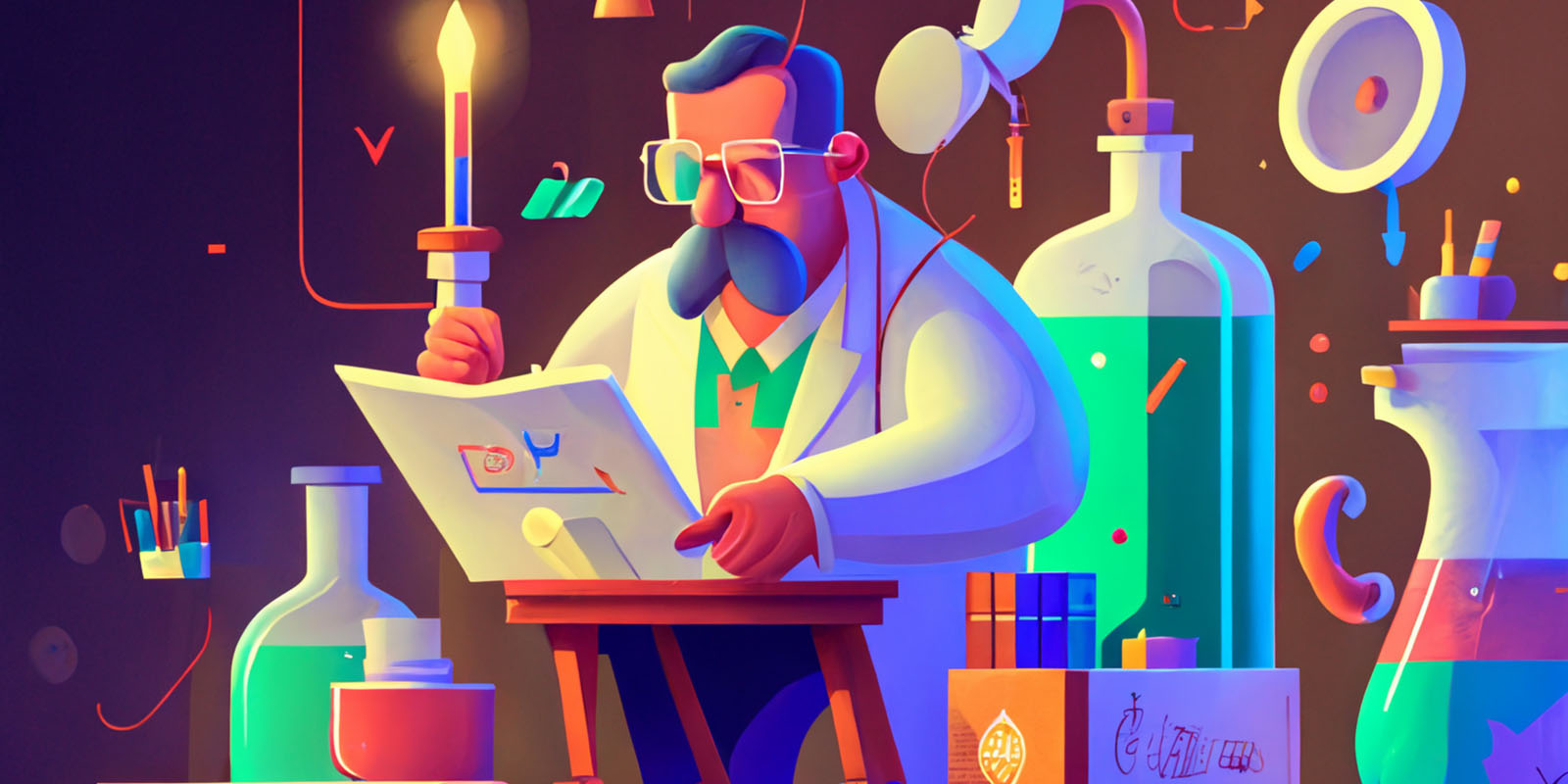Succeeding as a content creator requires more than just mastering the minutiae of style and mechanics. You also need to know how to write for the web, and search-engine optimization (SEO) is a huge part of that. Ignoring SEO will make it a lot harder for you to grow your audience. Now you may think that SEO is an impediment to good writing. After all, we’ve all seen articles that are overstuffed with keywords and look clunkier than a hippo on roller skates. Luckily, AI is making SEO easier than ever.
What is SEO?
First, let’s talk about the basics. Most of us turn to search engines like Google or Bing when we’re looking for information on the web, and SEO plays a huge role in determining where a site appears in search results. Higher spots are better—a typical search can produce hundreds or even thousands of results, and few people are going to click through more than the first few pages. Search engines are getting better and better. For example, with Google Lens, you can take a picture of a flower to get information on how to care for it, or you can screenshot a yellow chair and input “black” to discover if it comes in that color. Search is also becoming more and more contextual. You’ve probably noticed that, if you search for “coffee shops,” you’re likely going to see stores in your area. As search engines learn more and more about us, they can offer results that are precisely tailored to your needs in the moment (Miriam Ellis has written a good piece on why local is the future of search).
How does quality affect SEO?
Quality is more important than ever. Google’s guidelines for search quality raters—humans who provide feedback to help improve its search offerings—ask them to consider four factors when determining page quality:
· The first-hand experience of the creator
· The expertise of the creator
· The authoritativeness of the creator, the content itself, and their site
· The trustworthiness of the creator
Google uses the acronym EEAT as a shorthand for these facets. They might seem intimidating at first, but when all is said and done, they’re just looking for the kind of content you might see in a book or encyclopedia. It should have original information or analysis, and if it draws on other sources, it should avoid simply copying them. It should also be written well, without too many typos. And perhaps most crucially, it should be written for people, not algorithms.
How can AI help produce good content?
Artificial intelligence (AI) offers powerful tools to help you craft the kind of content that makes Google and other search engines happy while also providing value to your readers.
There’s a good chance you’ve heard of ChatGPT, a chatbot launched late last year by OpenAI. While previous attempts at AI chatbots were…less than stellar, ChatGPT has earned widespread acclaim for the quality of its results. Many people have found it to be capable of producing humanlike text, and it can avoid some of the pitfalls that have derailed its predecessors. When Alex Kantrowitz of Slate asked it to list good things that Adolf Hitler did, it didn’t list anything, and when he brought up Germany’s famed autobahnen, ChatGPT pointed out that they were built with forced labor.
But ChatGPT is more than just a cool toy for techies. Its ability to produce complex text means that any content creator now has a powerful weapon in the battle against that most dreaded of foes: writer’s block. For example, Ethan Mollick gave it the following prompt:
write an essay with the following points. use an academic tone. use at least one clear example. make it concise. write for a well-informed audience. use a style like the New Yorker. make it at least 7 paragraphs. vary the language in each one. end with an ominous note. -Humans are prone to error -Most errors are not that important -In complex systems, some errors are catastrophic -Catastrophes cannot be avoided
You can see its response on his Substack, and it isn’t half bad. It’s not going to win a Pulitzer, of course, but a human content creator could definitely find nuggets of inspiration there. You could also use it for brainstorming as well.
AI can also help you ensure your content is in the right form in the right places. Social media is a vast marketplace of ideas, and you need to write with it in mind. But if you’re used to writing long-form content like blog posts, it can be challenging to distill your content down to the sort of bite-sized morsels that do well on Twitter or Facebook. Fortunately, AI can do a lot of the heavy-lifting. It can also help you break into entirely new mediums. Say you’re a blogger who’s looking to establish a YouTube channel. AI can make the process of writing those first scripts a lot less painful.
ChatGPT isn’t the only AI-based tool that content creators can use, and there are several other options, including Jasper, Rytr, and Copy.ai. And AI can help with more than just the written word. DALL-E, Stable Diffusion, and Midjourney all let you create art from text-based prompts. Adding visual elements to your content is a must. Not only does it break up the text, but it can also help with SEO. Until now, creators either had to spend money on commissioning art or rely on the same generic stock photos as everyone else. But with AI, any creator can adorn their publication with unique art.
The limits of AI
Although AI has the potential to open new doors for content creators, it’s important to remember that it’s a tool, not a panacea. Even something as sophisticated as ChatGPT can struggle with niche subjects. Ask it something like “When did Queen Elizabeth II start assenting to Welsh legislation by Letters Patent?” and you’ll get a laughably inaccurate response. Google’s brand-new AI Bard made headlines for the wrong reasons when it flubbed an answer in its debut video. And CNET discovered that AI can give the laziest undergrad a run for their money when it comes to plagiarizing (though the creators of ChatGPT have recently released a tool that can help detect AI-generated content). AI-produced art can also fall into the uncanny valley, or be downright horrifying. But used intelligently, it can be a real boon to content creators.
AI and SEO in 2023
SEO may have evolved, but it’s still vitally important. Many of your readers will find you using search engines, and so you need to make sure your content is optimized for Google, Bing, and all the rest. Getting a high ranking means offering readers high-quality content. Luckily, AI-based tools make this easier than ever. They can help you get over writer’s block or polish your prose. They can also allow you to add visual interest to your publication with one-of-a-kind art. AI won’t solve all your problems, but at least it can take some of the stress out of being a content creator.
Google isn’t the only one interested in high-quality content. Newstex works with information databases such as ProQuest and LexisNexis, and their subscribers need a wide array of credible, authoritative content across many different fields. Check out “Information databases and why they matter” for more, well, information.








